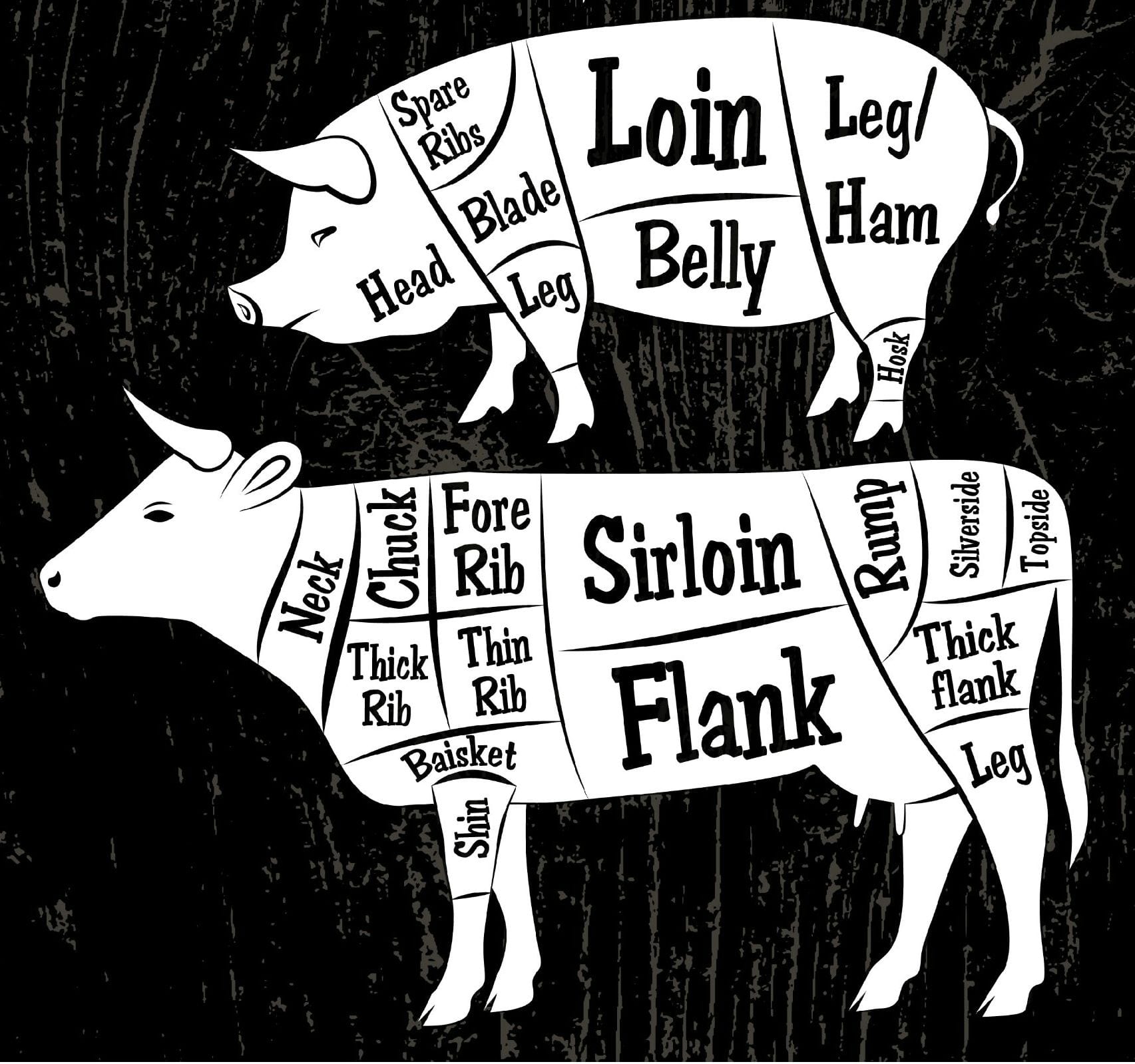 Take Action Below!
Take Action Below!
Urge your U.S. Representative to support H.R. 3187, the PRIME Act!
|
Here is an exception for a couple of reasons:
1. This is directly freeing for both farmers and non-farmers—it emancipates meat from the stranglehold of paranoid consumer advocacy groups, tyrannical bureaucrats, and corporate protectionism.
2. It is specific in granting a freedom, but respects states’ rights for implementation. More federal legislation should carry this balance.
3. It has historical precedent by simply turning the clock back to 1967. Some of us are still alive who remember 1967; it wasn’t that far away. How many cases of listeria, campylobacter, mad cow, salmonella, etc. did you hear about back then? Obviously turning back the clock a few years on federal government intervention might give us easier options to find pathogen-free food.
4. It reduces the cost of local food, which is perceived as elitist. If people actually realized how much of this local food price problem is only a result of prejudicial federal government policy, they would at least get as excited as they are about the upcoming presidential election.
5. It could actually gain traction. Be assured that big business, fearful, ignorant consumers, and government agencies will all align against this freedom. This is a defining piece of legislation that will truly expose food freedom foes and food freedom advocates. It’s good to draw a line in the sand once in a while.
So for all these reasons, please take a moment to look over this action alert. I know you’ll do the right thing.
Thank you,
Joel Salatin
ACTION ALERT
We have an exciting opportunity to expand access to locally produced meat for consumers around the country! U.S. Representatives Thomas Massie (R-KY) and Chellie Pingree (D-ME) have introduced legislation to make it easier for small farms and ranches to sell locally raised and processed meat to consumers.H.R. 3187, the Processing Revival and Intrastate Meat Exemption (PRIME) Act, would give individual states the freedom to permit intra-state distribution of custom-slaughtered meat such as beef, pork, or lamb, to individual consumers and to restaurants, hotels, boarding houses, and grocery stores that directly serve consumers.
Under current federal law, farmers often have to haul their animals several hours away to reach a slaughterhouse that has an inspector on-site, even if they’re selling the meat directly to consumers at a local farmers market or similar venue. This increases expenses for the farmer, raises prices for consumers, creates stress on the animals, and undermines the concept of local food.
The farmer might have a “custom” slaughterhouse much closer—but, under the federal regulations, the meat from a custom facility can only go to the individual or individuals who owned the animal at the time the slaughter took place. This means that the customer(s) must buy the whole animal while it is still alive; for many farmers and consumers, this is not viable.
The PRIME Act would allow meat from custom slaughterhouses to be sold to consumers, subject to state law; each state would be able to set the requirements and limitations it thought appropriate. While this is a major step forward for the local food movement, it’s not unprecedented by any means: until 1967, states were able to set their own regulations for meat processing. The consolidation of regulatory power at the federal level, combined with the consolidation of the livestock industry in the hands of a few massive corporate meatpackers, has led to the loss of thousands of small- and medium-scale slaughterhouses since 1967.
Demand for locally produced beef outstrips production in the U.S., in part, because of the lack of access to inspected slaughterhouses. The PRIME Act is the first step to rebuilding local processing infrastructure, which can revive rural economies and enable communities to become more self-sufficient in meat production.
We owe a big thank you to Representatives Massie and Pingree for filing this important bill. As of July 31, they have been joined by the following co-sponsors: Representatives Walter Jones (R-NC), Jared Polis (D-CO), Jared Huffman (D-CA), Justin Amash (R-MI), Scott Garrett (R-NJ), and John Garamendi (D-CA).
Will you help move this important bill forward? Please contact your U.S. Representative and urge him or her to co-sponsor the PRIME Act! More details are below.
TAKE ACTION: Contact Your U.S. Representative
Call or email your U.S. Representative and urge him or her to co-sponsor H.R. 3187, the PRIME Act.You can find out who represents you by going to www.house.gov or by calling the Capitol Switchboard at 202-224-3121.
SAMPLE MESSAGE:
As a constituent, I urge Representative ____ to co-sponsor H.R. 3187, the PRIME Act. This important bill will make it easier for small farms and ranches to succeed financially and provide consumers with greater access to locally raised meats. The bill simply removes the federal ban on the sale of meat from custom slaughterhouses directly to consumers and venues serving consumers within a state, subject to state law. This returns power to the states to establish a regulatory scheme that makes sense for their citizens.
The PRIME Act is the first step to rebuilding local processing infrastructure, which can revive rural economies and enable communities to become more self-sufficient in meat production.
Please support our local farmers and consumer choice by co-sponsoring H.R. 3187.
[Name] [City, State] If you are a livestock producer, take a few extra minutes and ask to speak to the staffer who handles agricultural issues. Briefly explain to the staffer any problems you have faced with lack of access to inspected slaughterhouses, and how the PRIME Act would help your business and benefit your customers.
Read “Joel Salatin on Meat Processing and the PRIME Act”
YOUR FUND AT WORK
 Services provided by FTCLDF go beyond providing legal representation for members in court cases.
Services provided by FTCLDF go beyond providing legal representation for members in court cases.Educational and Political Action Services also provide an avenue for FTCLDF to build grassroots activism to create the most favorable regulatory climate possible. In addition to advising on bill language, FTCLDF supports favorable legislation via action alerts, social media outreach, and the online petition service.
You can help FTCLDF by becoming a member or donating today.





0 comments:
Post a Comment